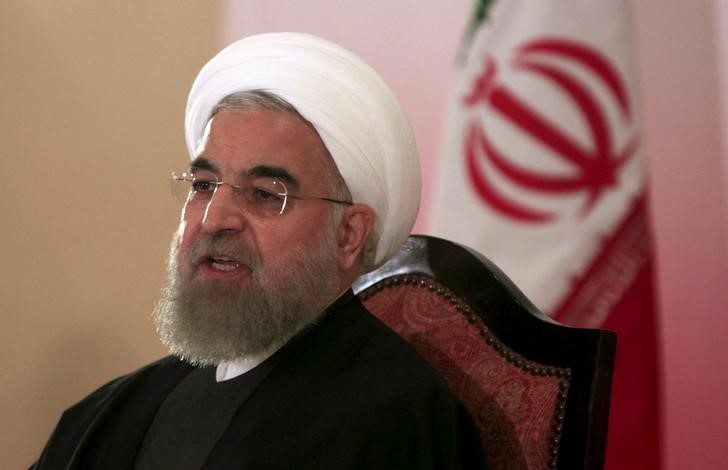ANKARA (Reuters) - Iran's President Hassan Rouhani accused Western powers of trying to exploit differences between the world's Sunni and Shi'ite Muslims to divert attention from the Israel-Palestinian conflict, state television reported on Friday.
Rouhani's comments came as tens of thousands of Iranians joined anti-Israel rallies across the country to mark the annual al-Quds Day, established by the late founder of the Islamic Republic, Ayatollah Ruhollah Khomeini.
The protesters condemned the Israeli occupation of Palestinian territories and chanted "Death to Israel" and "Death to America".
"The global arrogance (the United States and its allies) wants to create discord among Muslims ... Unity is the only way to restore stability in the region," Rouhani said.
"We stand with the dispossessed Palestinian nation."
Opposition to Israel, which Tehran refuses to recognise, has been a cornerstone of Iranian policy since its 1979 Islamic revolution. Shi'ite Muslim Iran backs Palestinian and Lebanese militant groups who oppose peace with Israel.
"The Zionist regime (Israel) is a regional base for America and the global arrogance ... Disunity and discord among Muslim and terrorist groups in the region ... have diverted us from the important issue of Palestine," Rouhani said.
Shi'ite-led Iran has repeatedly called on its Sunni Muslim rival Saudi Arabia to help improve their strained bilateral relations and work for stability in the Middle East.
Arch-rivals for regional hegemony, the two oil producers are on opposite sides in proxy battles in the region, where they back competing factions in Iraq, Syria, Yemen, Lebanon and Bahrain.
Ties have worsened since Riyadh's execution in January of prominent Shi'ite cleric Nimr al-Nimr prompted attacks on the Saudi embassy in Tehran. Saudi Arabia subsequently cut all ties with Iran.

Riyadh is worried that a landmark nuclear deal reached between Iran, the United States and five other major powers in 2015 will help Tehran gain the upper hand in their regional standoff.